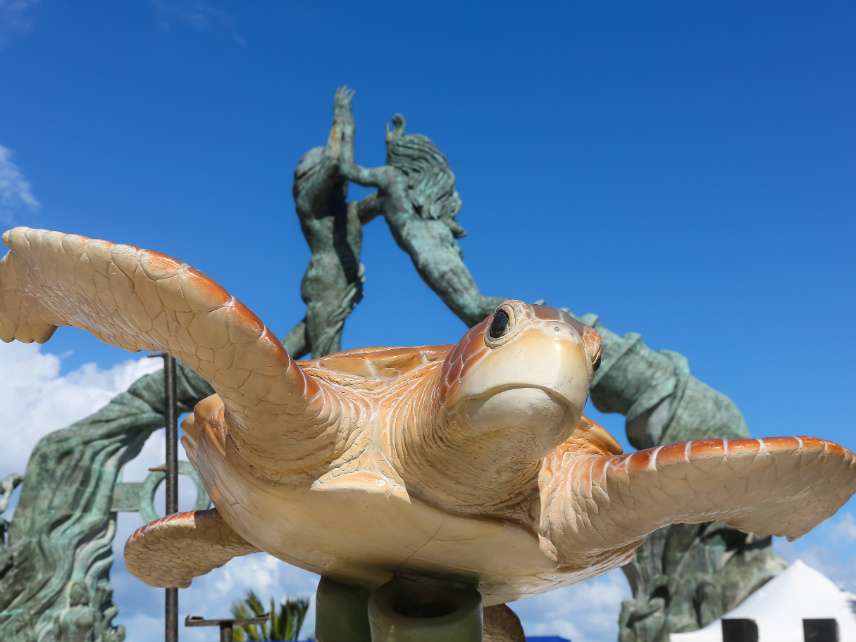Environmental Protection Agency
Environmental Protection Agency Gives $45,000 Grant to Help Non-Profit Build Sea Turtle-Shaped Trash Can
The $45,000 grant goes to a New York environmental group's "Going Strawless to Save the Sea Turtle" campaign.

The movement to crack down on plastic straws is finally getting a little financial help from the federal government, which last week announced that it would be spending tens of thousands of dollars to help build a see-through mesh trash receptacle shaped like a sea turtle.
On December 4, the Environmental Protection Agency (EPA) announced $2.57 million in grants to environmental nonprofit groups in New York and Connecticut working to clean up Long Island Sound. The recipients include the Citizens Campaign for the Environment (CCE), whose "Going Strawless to Save the Sea Turtle" campaign received $45,000 in federal cash.
The EPA's press release announcing the awards says CCE will use that money to "conduct comprehensive public education to reduce the use of plastic." As part of this campaign, CCE will collect up to 500 pledges from people promising to use less plastic, and organize a beach clean-up involving roughly 200 volunteers.
CCE's Executive Director Adrienne Esposito told Newsday that refuse from beach clean-ups will be deposited in a mesh sea turtle statue which is also being funded by the federal grant.
According to the National Fish and Wildlife Foundation, a Congressionally-chartered organization responsible for administering the EPA's Long Island Sound clean-up grants, the sea turtle trash statue portion of the project serves an important educational role.
"The waste receptacle is viewed as a creative and targeted strategy [to] educate the general public, and especially youth about the negative impact of plastic debris on the living resources and recreational uses of Long Island Sound," the NFWF said in a statement to Reason.
It's not clear how much of the $45,000 in federal grants will be eaten up by the trash turtle statue. CCE did not respond to repeated requests for comment. The environmental group's federal grant is being supplemented by $45,000 in non-federal matching funds.
Needless to say, $45,000 in federal spending is not going to break the bank. And while I am critical of the focus on plastic straws, CCE's plans for a voluntary coastal clean up are laudable. Nevertheless, federal taxpayers should not be on the hook for such projects.
Rent Free is a weekly newsletter from Christian Britschgi on urbanism and the fight for less regulation, more housing, more property rights, and more freedom in America's cities.


Show Comments (9)